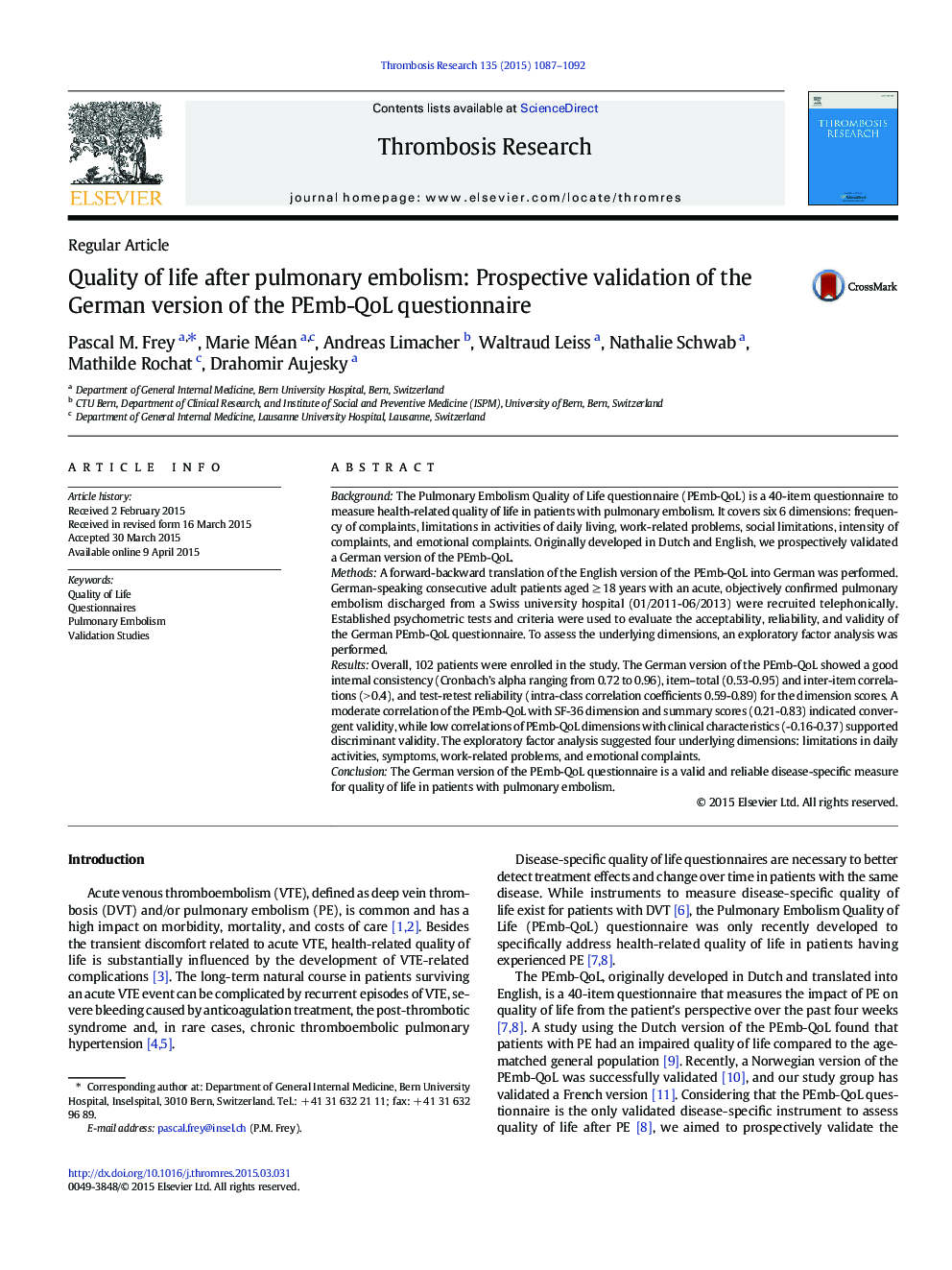| Article ID | Journal | Published Year | Pages | File Type |
|---|---|---|---|---|
| 6001801 | Thrombosis Research | 2015 | 6 Pages |
•The PEmb-QoL questionnaire is a disease-specific measure for quality of life after pulmonary embolism•A Dutch, Norwegian and French language version of the PEmb-QoL have been validated•We used established methods to validate a German version of the PEmb-QoL•The German PEmb-QoL is a valid and reliable instrument
BackgroundThe Pulmonary Embolism Quality of Life questionnaire (PEmb-QoL) is a 40-item questionnaire to measure health-related quality of life in patients with pulmonary embolism. It covers six 6 dimensions: frequency of complaints, limitations in activities of daily living, work-related problems, social limitations, intensity of complaints, and emotional complaints. Originally developed in Dutch and English, we prospectively validated a German version of the PEmb-QoL.MethodsA forward-backward translation of the English version of the PEmb-QoL into German was performed. German-speaking consecutive adult patients aged ≥ 18 years with an acute, objectively confirmed pulmonary embolism discharged from a Swiss university hospital (01/2011-06/2013) were recruited telephonically. Established psychometric tests and criteria were used to evaluate the acceptability, reliability, and validity of the German PEmb-QoL questionnaire. To assess the underlying dimensions, an exploratory factor analysis was performed.ResultsOverall, 102 patients were enrolled in the study. The German version of the PEmb-QoL showed a good internal consistency (Cronbach’s alpha ranging from 0.72 to 0.96), item–total (0.53-0.95) and inter-item correlations (> 0.4), and test-retest reliability (intra-class correlation coefficients 0.59-0.89) for the dimension scores. A moderate correlation of the PEmb-QoL with SF-36 dimension and summary scores (0.21-0.83) indicated convergent validity, while low correlations of PEmb-QoL dimensions with clinical characteristics (-0.16-0.37) supported discriminant validity. The exploratory factor analysis suggested four underlying dimensions: limitations in daily activities, symptoms, work-related problems, and emotional complaints.ConclusionThe German version of the PEmb-QoL questionnaire is a valid and reliable disease-specific measure for quality of life in patients with pulmonary embolism.
